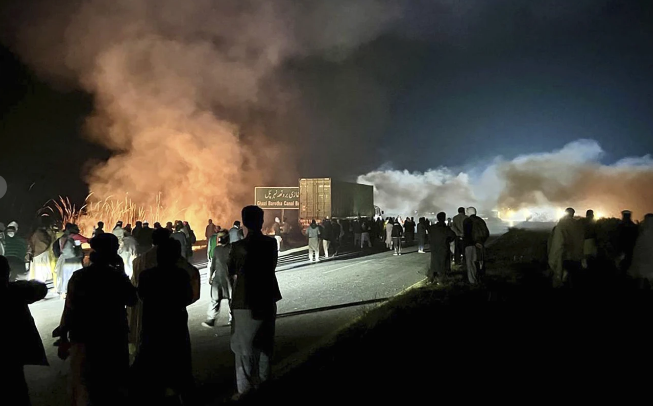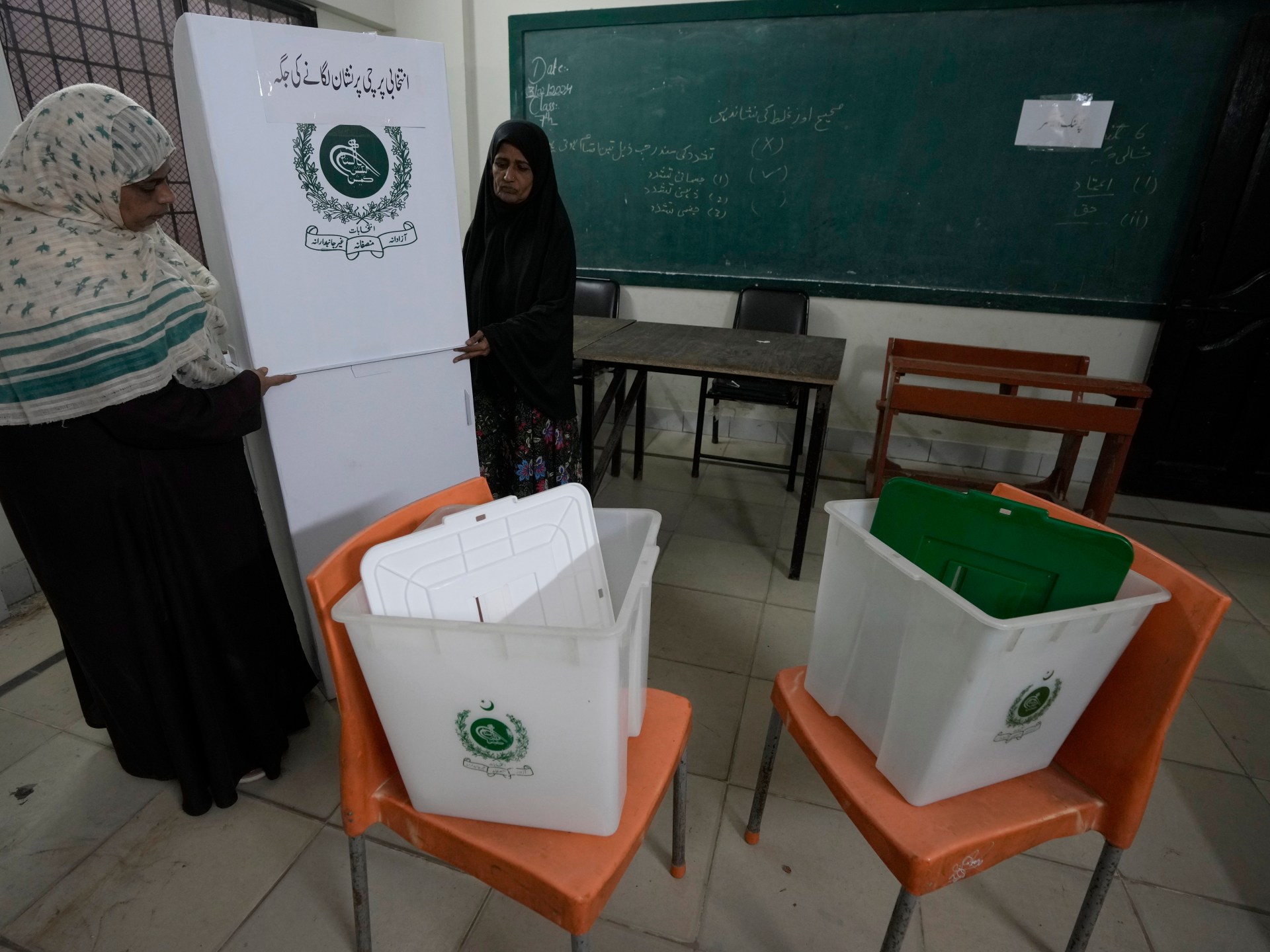
Pakistan’s real test begins after election, say analysts
Al JazeeraPakistan’s struggling democracy faces serial crises — political, economic, on the security front, and above all, of legitimacy, say experts. Lahore, Pakistan – Four months after Pakistan was originally scheduled to hold national elections, the country’s 128 million voters will on Thursday get the chance to pick their next federal government amid a pre-poll crackdown on former Prime Minister Imran Khan’s party and a climate of political and economic instability. “While the election results might bring a sense of temporary stability, it is increasingly clear to the public and party leaders alike that long-term sustainability can only be achieved when this cycle of political engineering is broken,” analyst and columnist Danyal Adam Khan said, referring to a widespread sentiment in Pakistan that the election process has been influenced by the country’s powerful military establishment to deny a fair chance to Imran Khan’s Pakistan Tehreek-e-Insaf party. While their initial honeymoon seemed promising, cracks emerged, and after nearly four years, Khan became the first Pakistani prime minister deposed through a no-confidence vote, continuing a telling trend in the country’s 77-year history: no PM has ever completed their five-year term Khan’s relationship with the military hit its lowest point on May 9, 2023, when he was briefly arrested for corruption. Political analyst Benazir Shah acknowledged the history of manipulation in Pakistan’s elections but said that young voters – the country’s largest demographic – had a chance to make their voices heard.
History of this topic

Protest nation: On the state of Pakistan
The Hindu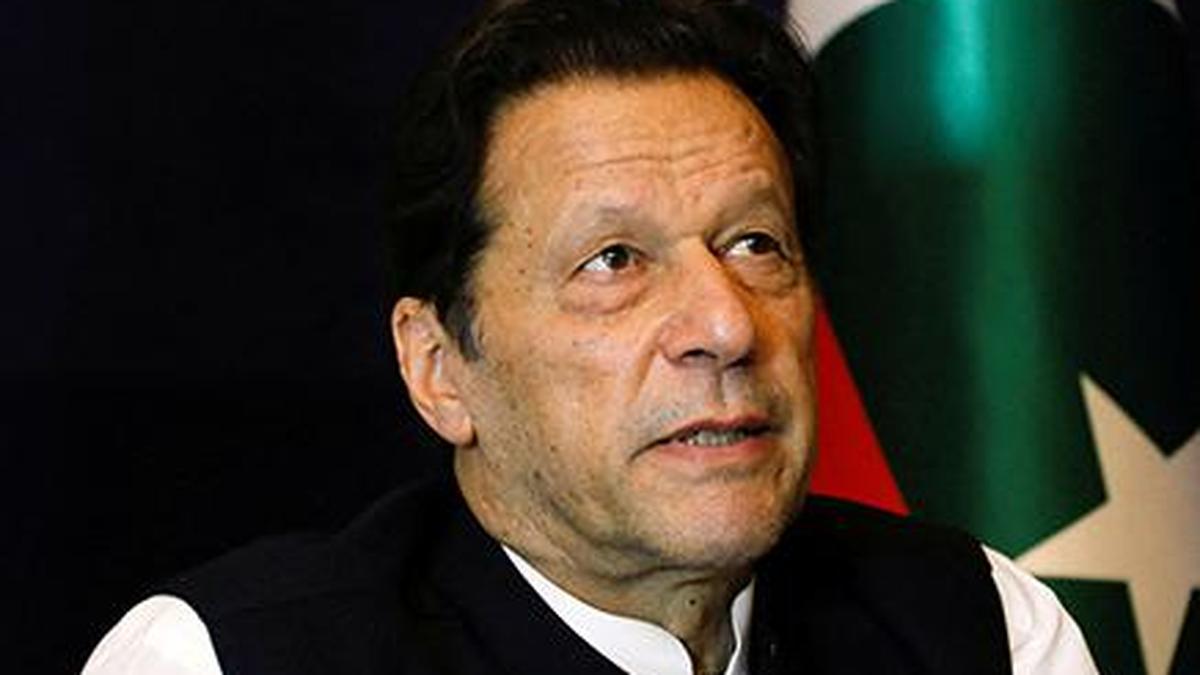
Former Pakistan PM Imran Khan's party reiterates demand for CEC’s resignation over alleged poll rigging
The Hindu
Imran Khan's party reiterates demand for CEC's resignation over alleged poll rigging in Pakistan
New Indian Express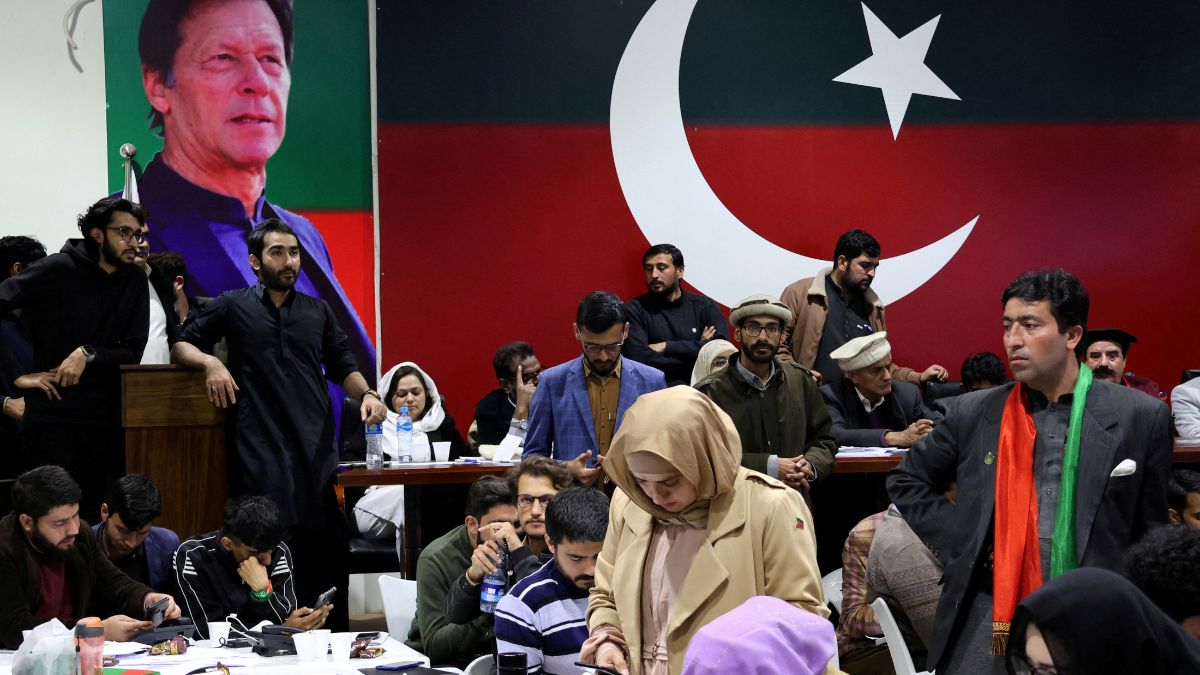
Pakistan by-elections: Polling begins on 21 national and provincial seats amid internet curbs
India TV News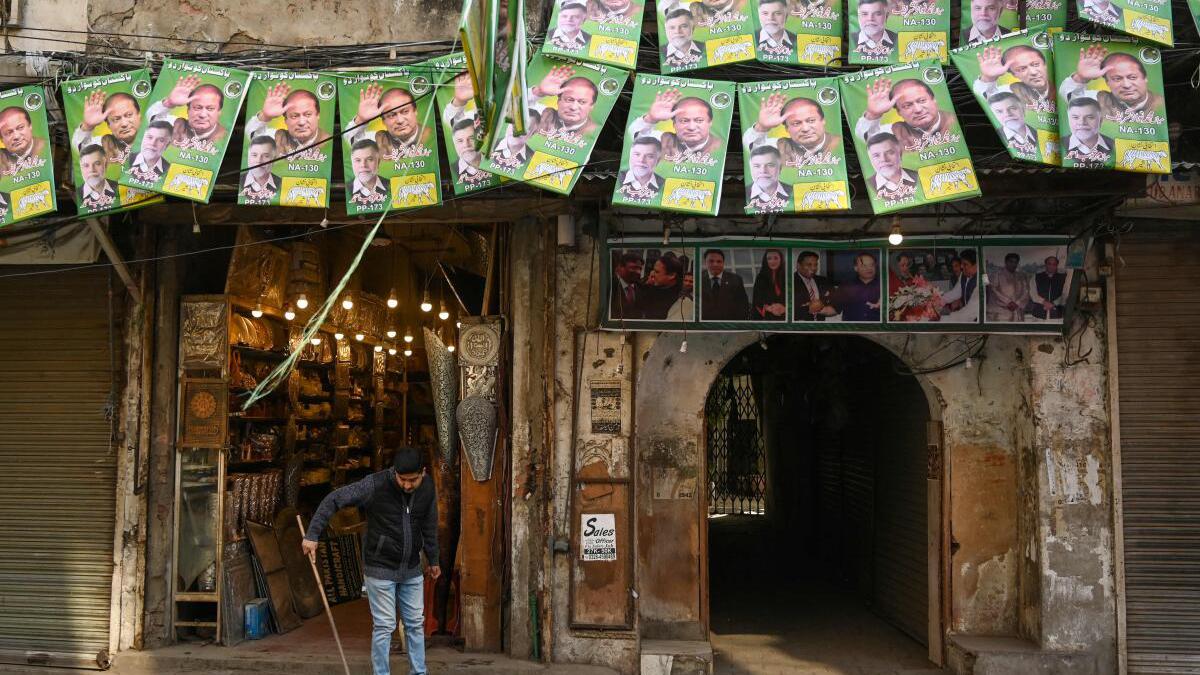
Pakistan elections: four provinces, mixed results, one message | Data
The Hindu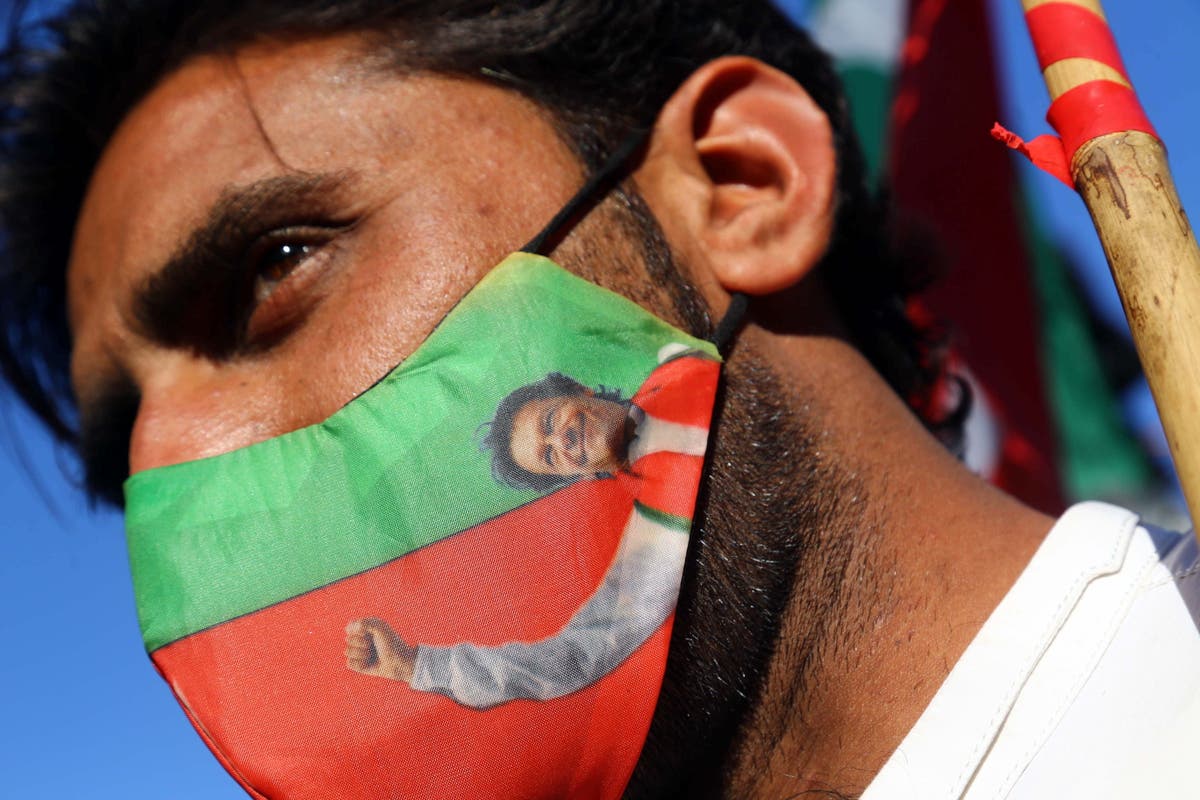
Imran Khan’s party calls for nationwide protests in Pakistan over ‘stolen’ election
The Independent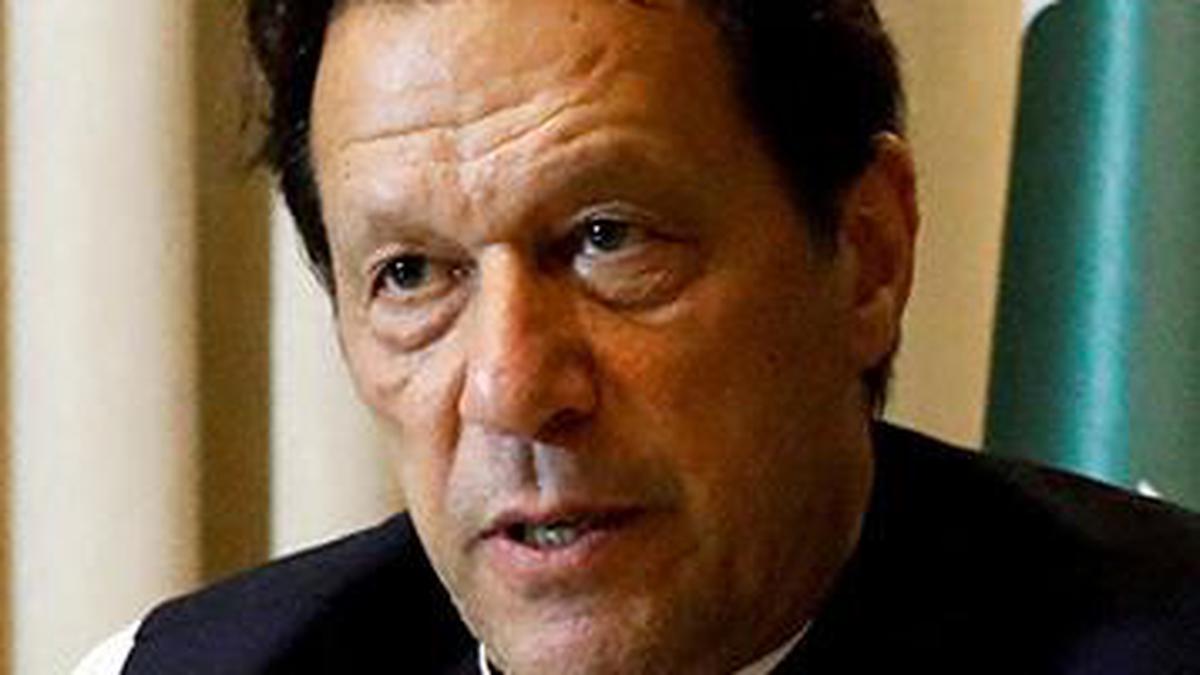
Fresh blow to Imran Khan's party as PML-N candidates' victory notified from Islamabad seats
The Hindu
Hamstrung by history, divided by ambition
New Indian Express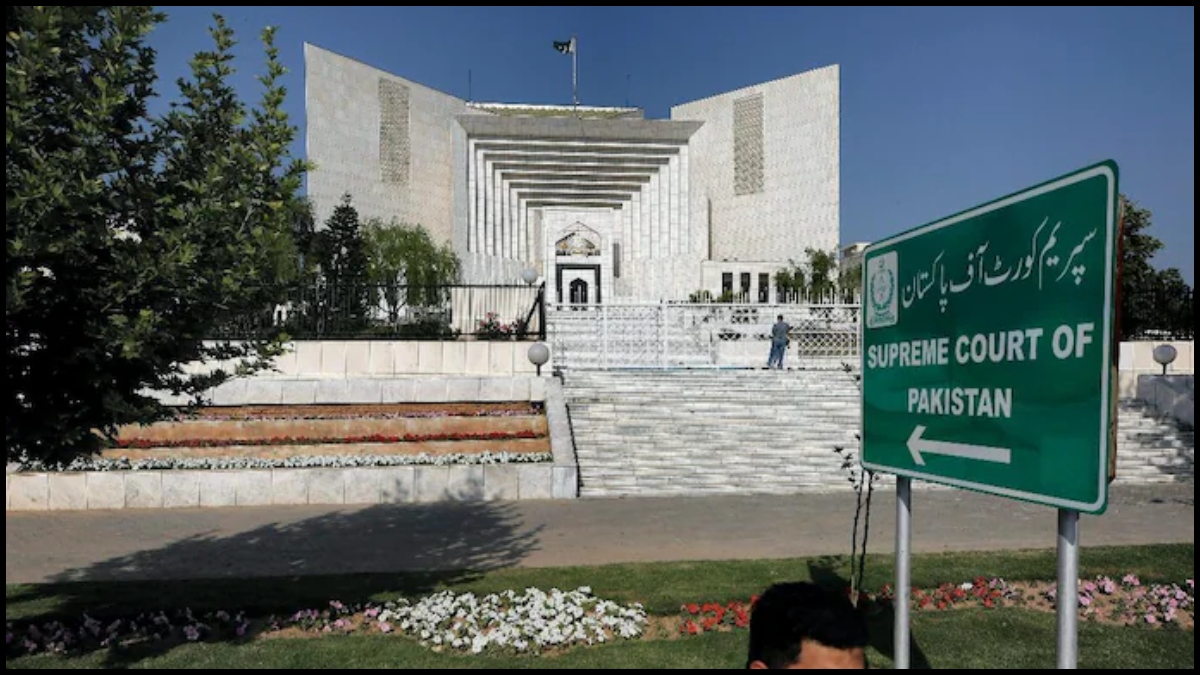
'Such a prank cannot be played...': Pakistan SC raps absentee petitioner seeking nullification of elections
India TV News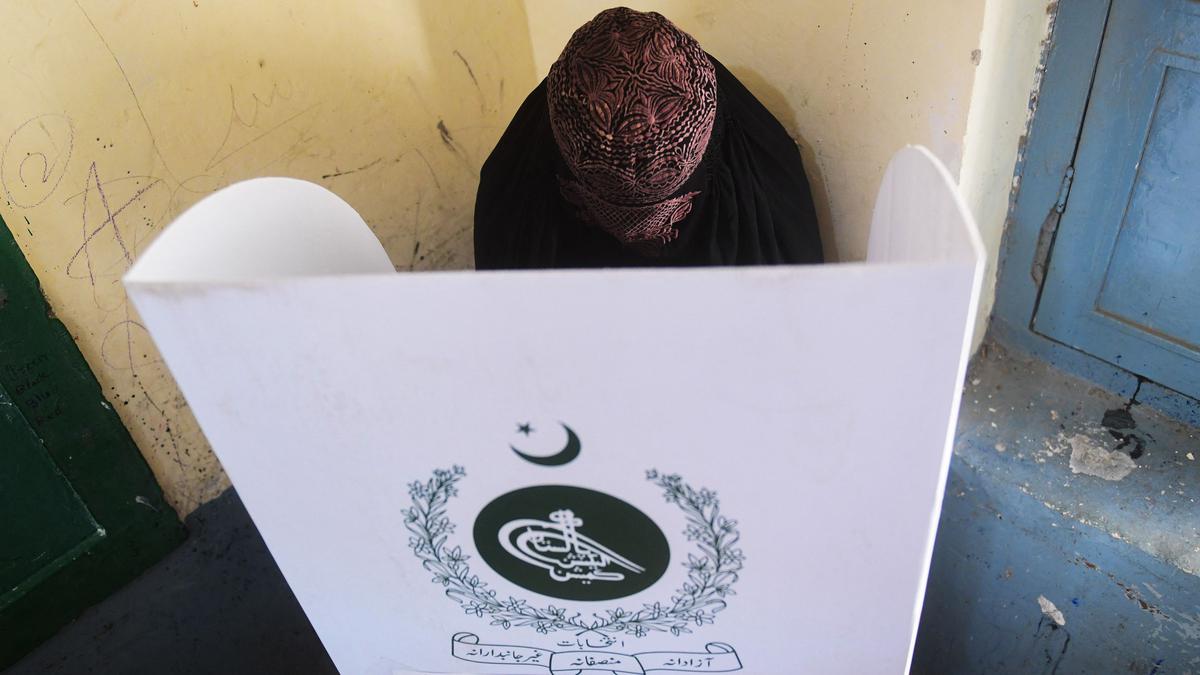
A chance to stop the laundry cycle of Pakistan’s elections
The Hindu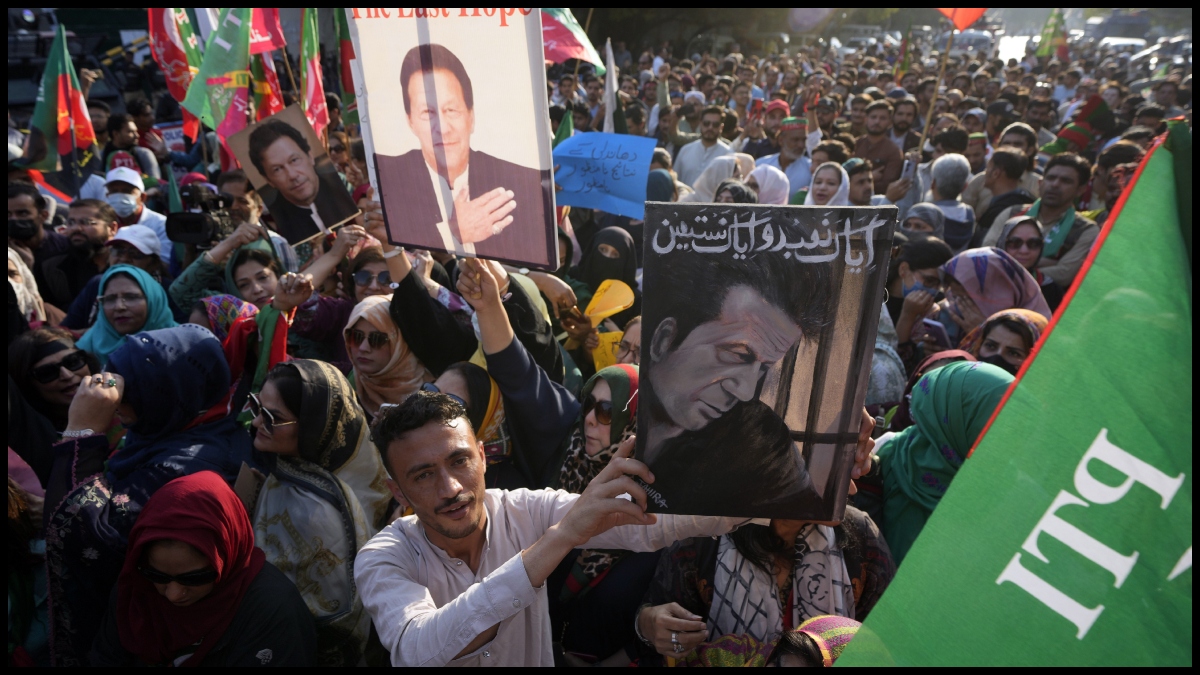
Pakistan: Imran Khan's PTI to sit in opposition in Centre and Punjab, claims 'biggest voter fraud'
India TV News)
Pakistan: PTI strategises govt formation in Centre, Punjab, Khyber Pakhtunkhwa as party-backed candidates bag 101 seats
Firstpost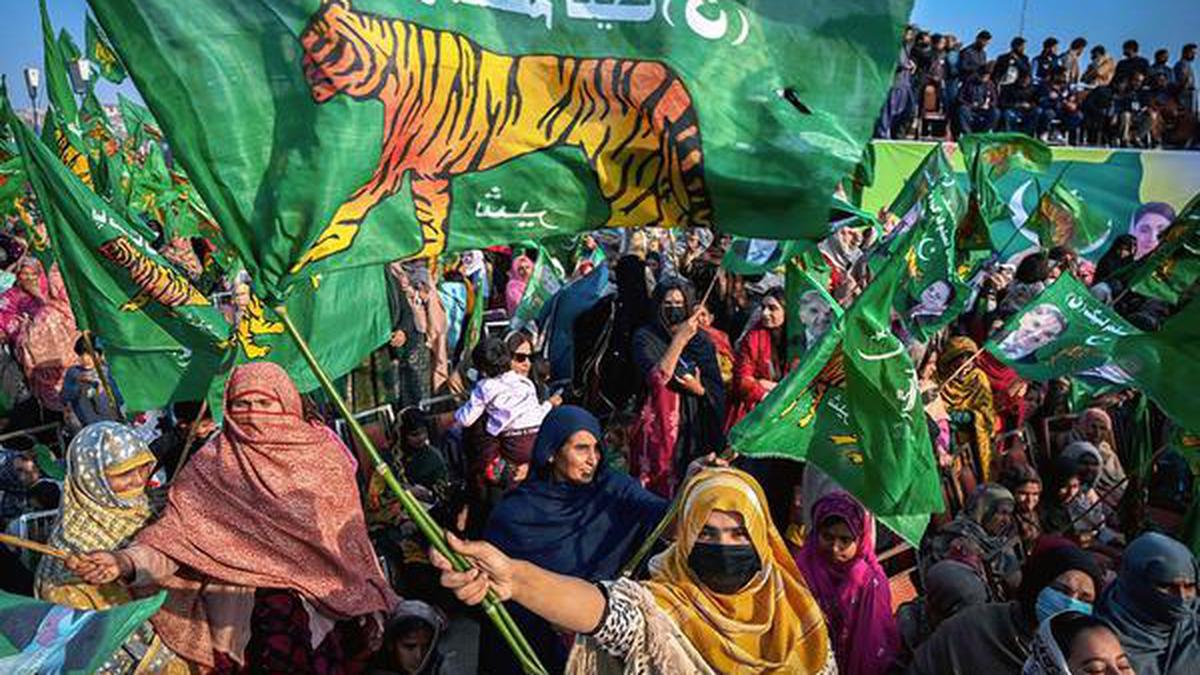
View From India | What’s next in Pakistan after the elections?
The Hindu
Pakistan’s premier defends delay in releasing election results, denies vote was unfair
LA Times
Pakistan election results: Imran Khan scores 100 sans a ‘bat’, PTI to hold protest amid Nawaz Sharif's key meet
Hindustan Times
Pakistan elections Highlights: Police fire tear gas at Imran Khan supporters
Hindustan Times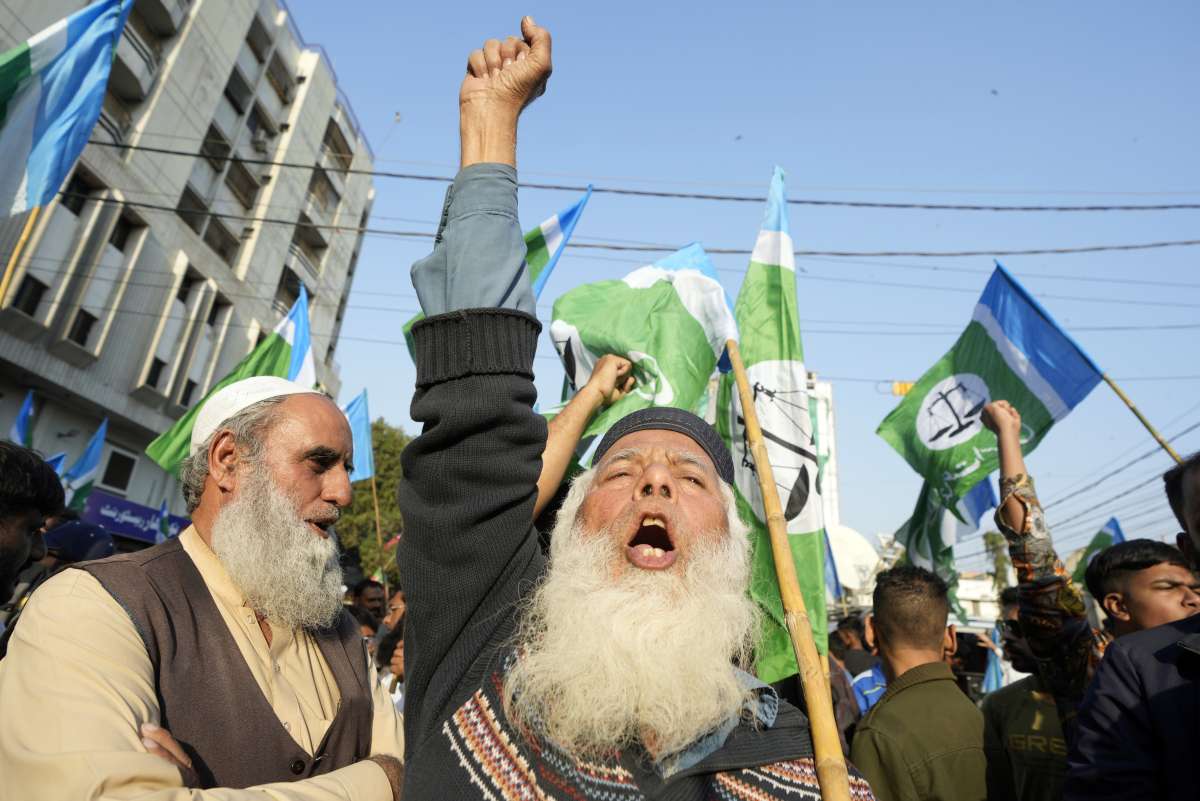
Pakistan Election Commission announces fresh polls in some booths as Imran Khan's party alleges rigging
India TV News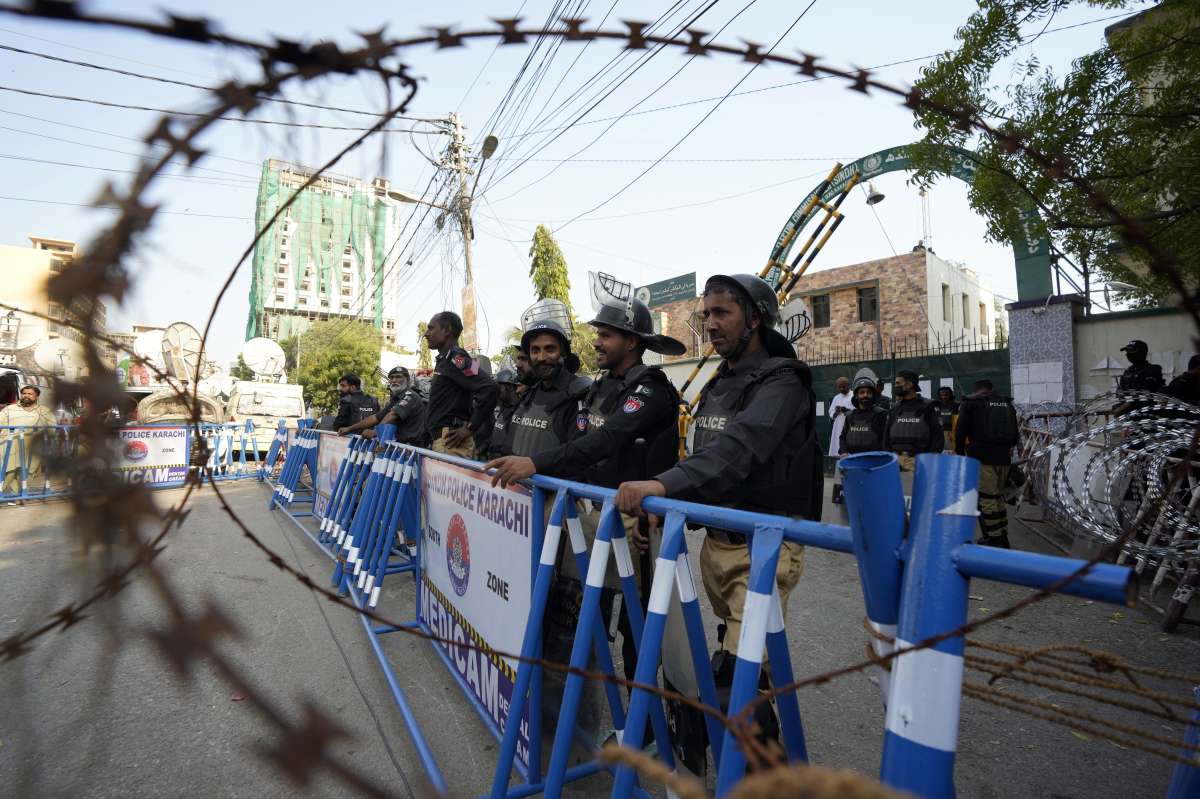
Pakistan Elections Result HIGHLIGHTS: PML-N, PPP hold meeting to discuss govt formation, PTI rules out talks
India TV News
Rigged elections in Pakistan: What’s next for the near-failed state?
Live MintPakistan elections | Imran Khan’s PTI threatens agitation if complete results are not declared by midnight
The Hindu
Pakistan Elections: US, UK, EU demand probe into irregularities, fraud
Live Mint
Pakistan election results 2024 Highlights: Imran Khan to decide next PM, claims PTI chief
Hindustan Times
Pakistan election results 2024 Highlights: Imran Khan to decide next PM, claims PTI chief
Hindustan Times
Pakistan’s Khan, Sharif both claim election win, despite no clear majority
Al Jazeera
Pakistan army chief tells politicians to show 'maturity' after indecisive poll
New Indian ExpressPakistan elections 2024 | Jailed ex-PM Imran Khan claims election victory as his supporters lead in polls
The Hindu
Deeper implications of Pakistan election verdict
Hindustan Times
Murky elections, unclear verdict
Hindustan Times
Pakistan Elections: A look at challenges awaiting new govt
Live Mint
Political turmoil deepens in Pakistan over delay in election result
Live Mint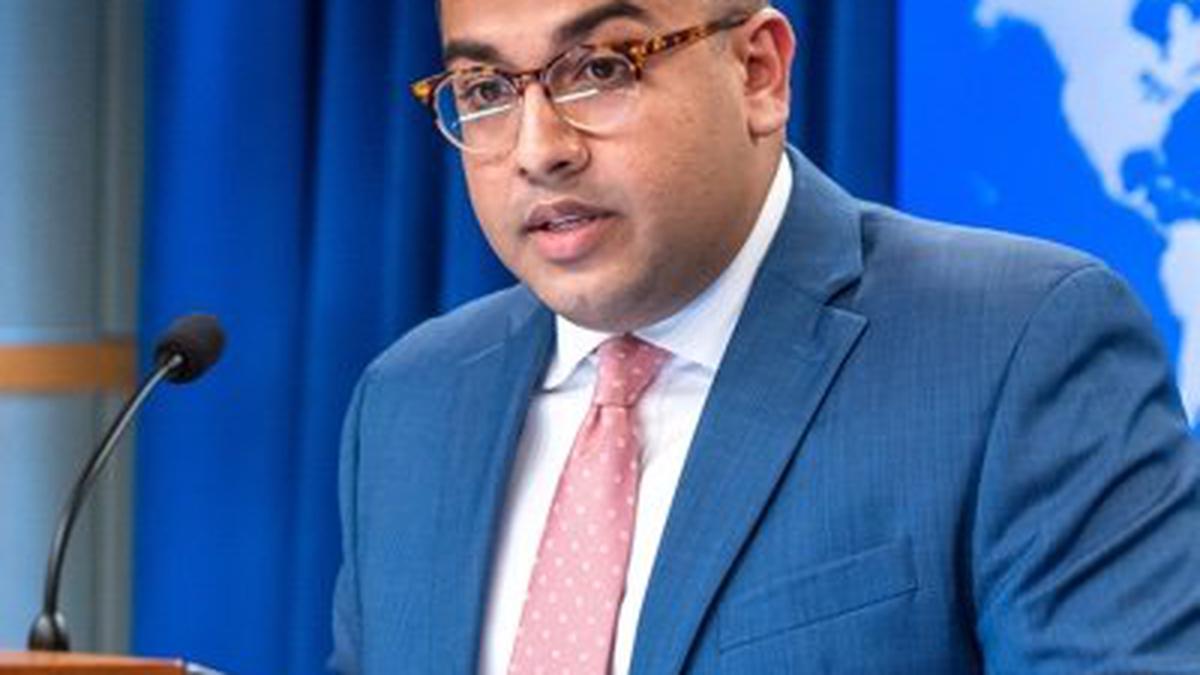
People of Pakistan to decide its future leadership: U.S.
The Hindu
Mint Explainer: What an election upset in Pakistan could mean for India
Live Mint
Mint Explainer: What an election upset in Pakistan could mean for India
Live Mint
As early results come in, could Pakistan election spring a surprise?
Al Jazeera
Photos: Supporters of Pakistan’s PTI protest for fair election results
Al Jazeera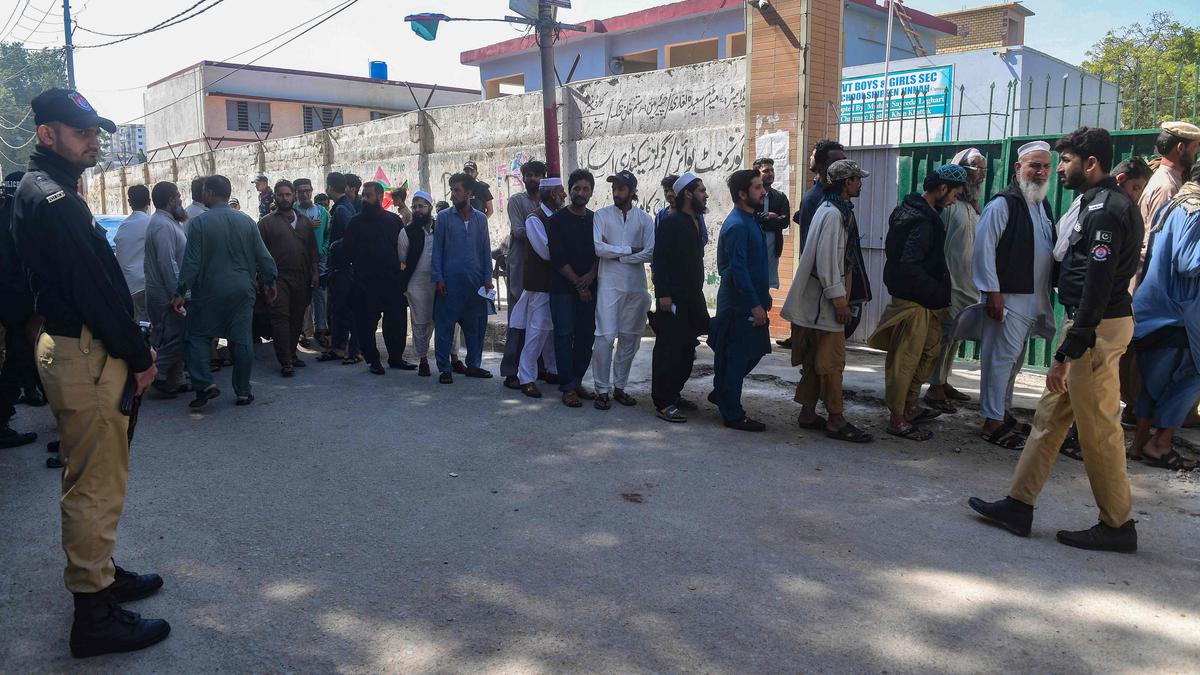
Pakistan general election 2024 | Imran Khan's party says its polling agents picked by police in Punjab province
The Hindu
Pakistan polls 2024: What you need to know about candidates, key issues and what this election means for the country
The Independent
Pakistan election 2024 in numbers: Facts that you must know
Hindustan Times
Pakistan Election 2024 Highlights: Imran Khan's party-backed independents ahead
Hindustan Times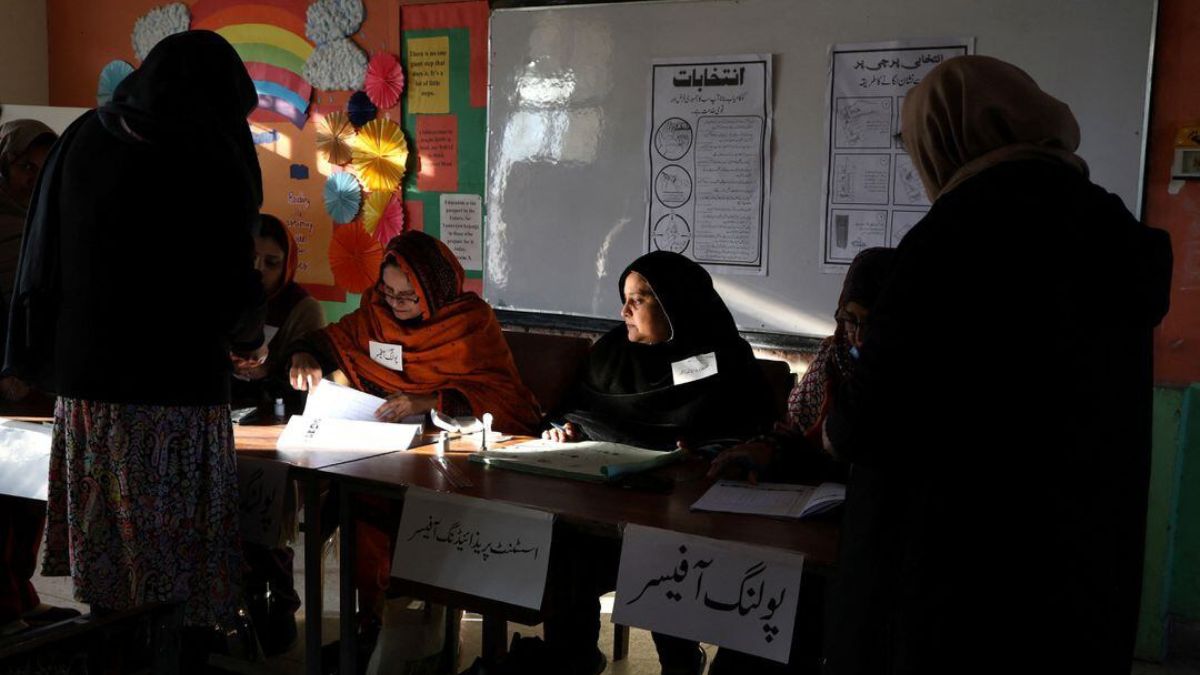
Pakistan Election Results 2024 Highlights: PTI-backed candidates put up valiant effort despite all odds
India TV News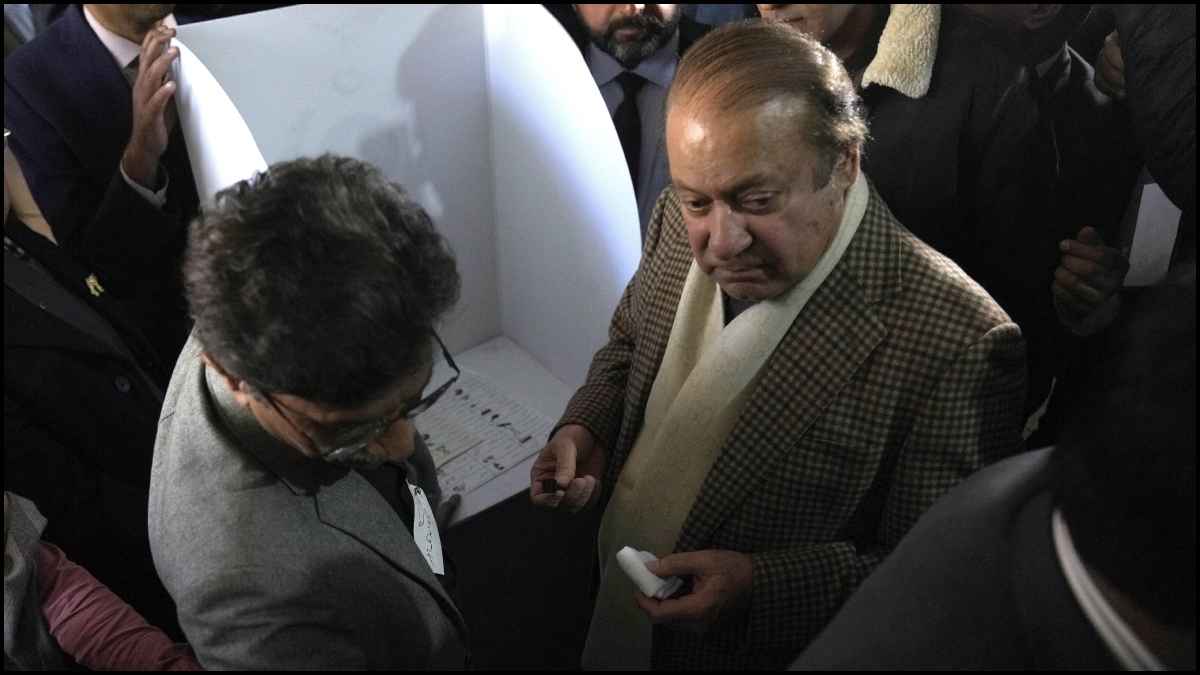
Pakistan elections 2024: Voting concludes amid claims of rigging, delays and sporadic violence
India TV News
Pakistan holds polls, army’s shadow looms
Hindustan Times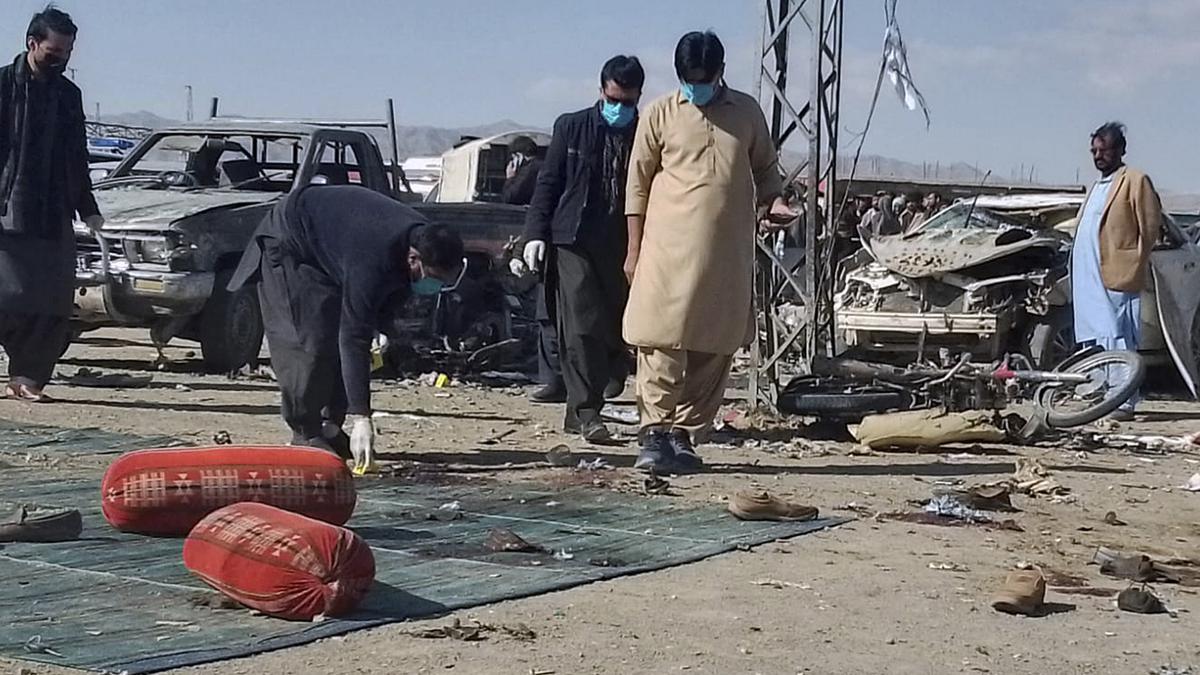
At least 30 killed in twin blasts on the eve of Pakistan polls
The HinduA timeline of key events leading up to Pakistan’s parliamentary election
Associated PressPakistan’s election: Who’s running, what’s the mood and will anything change?
Associated Press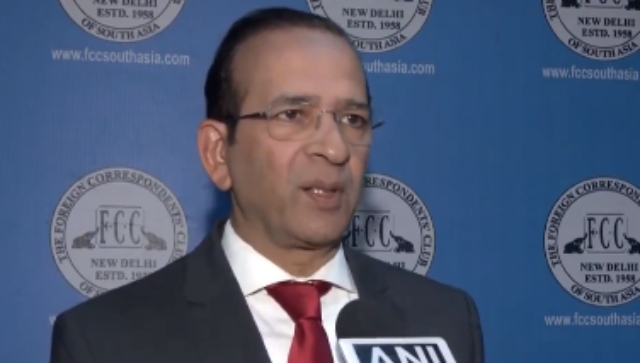)
Pakistan's 8 Feb elections 'most rigged', 'selection of Nawaz Sharif' almost certain, says ex-Indian diplomat Bisaria
Firstpost
Pakistan voters wonder if polls will change the country mired in political turmoil
The Hindu
Bombings at Pakistani political offices kill at least 30 a day before parliamentary elections
LA Times
Pakistan Elections and the Big Legitimacy Question Mark - News18
News 18Discover Related



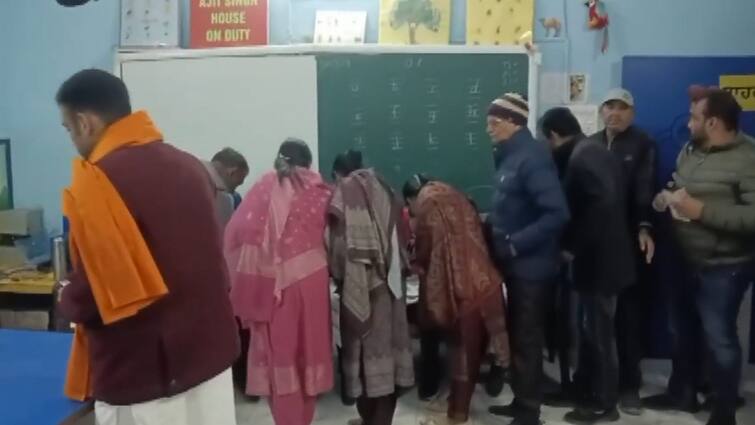
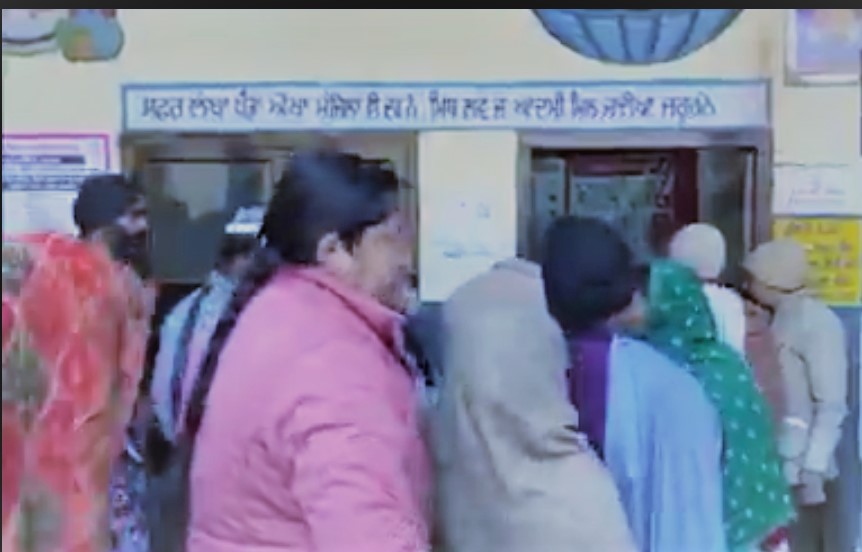

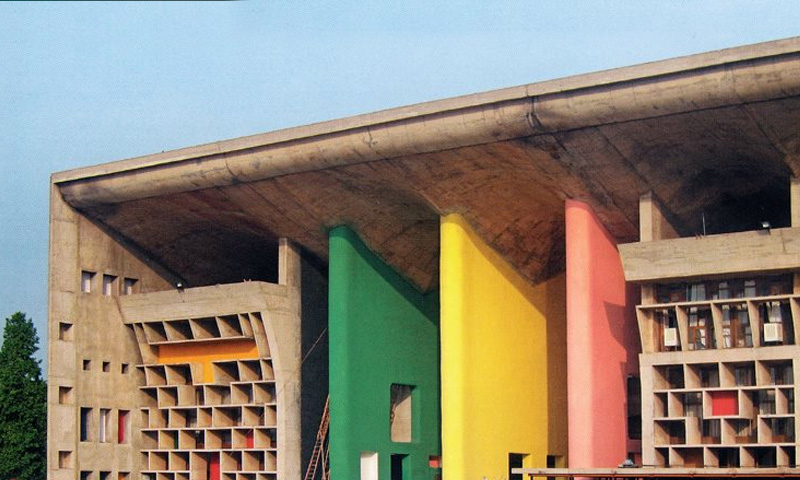

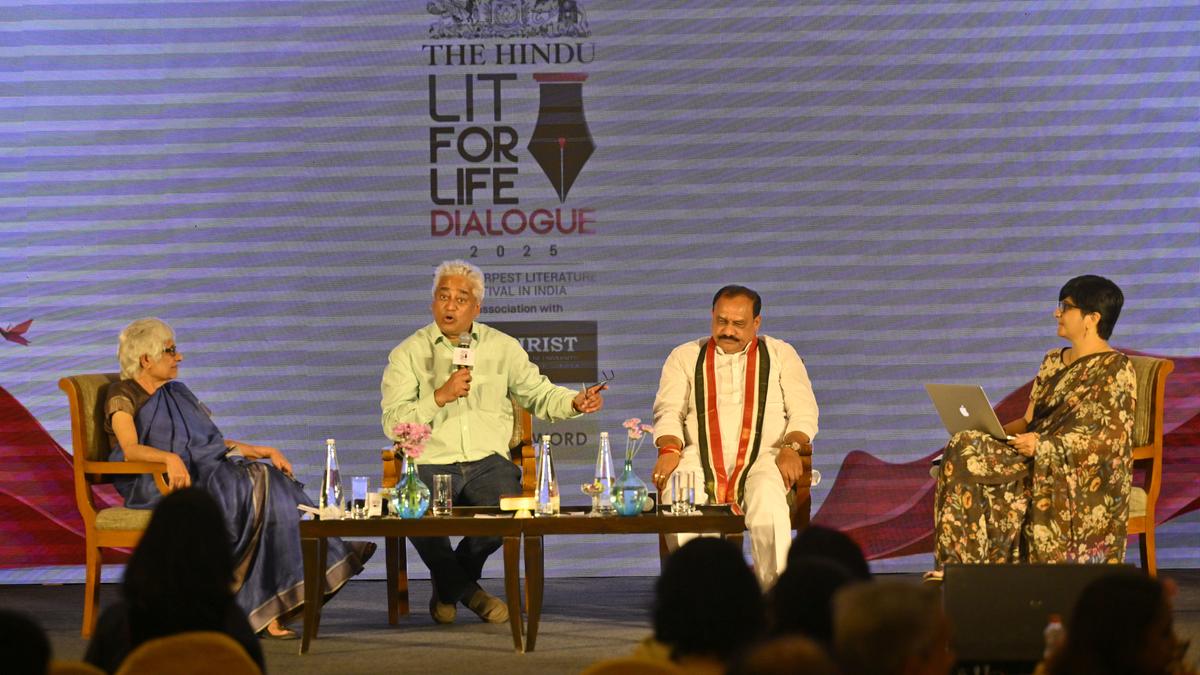








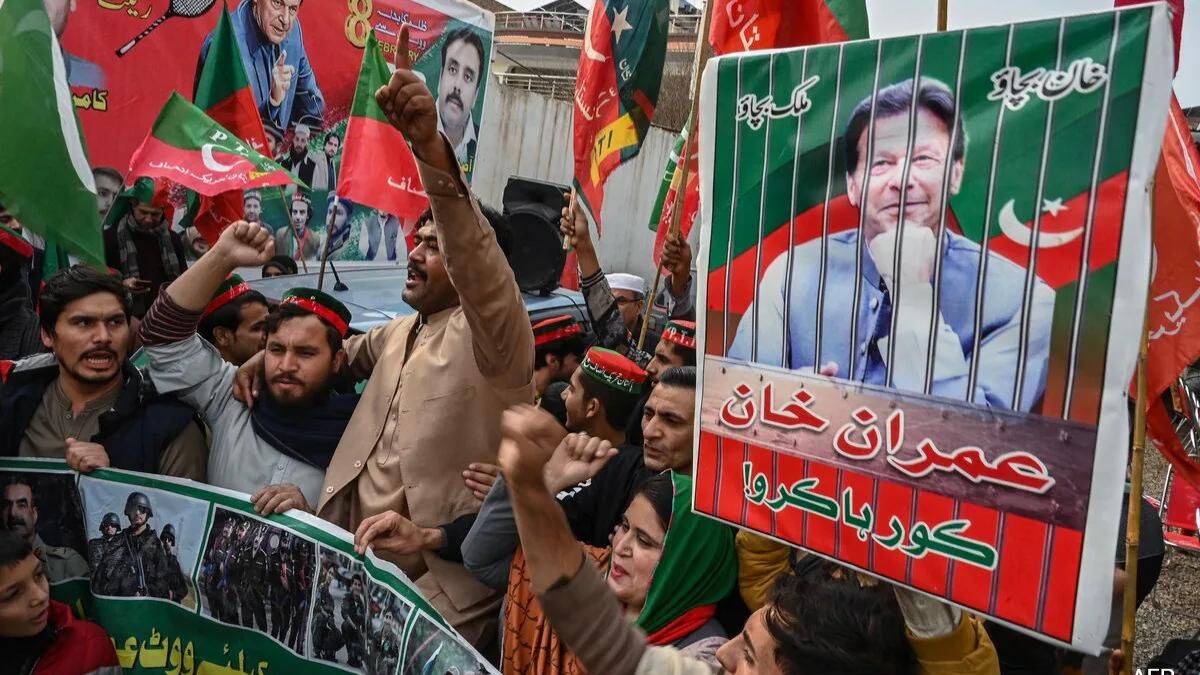)
)



)
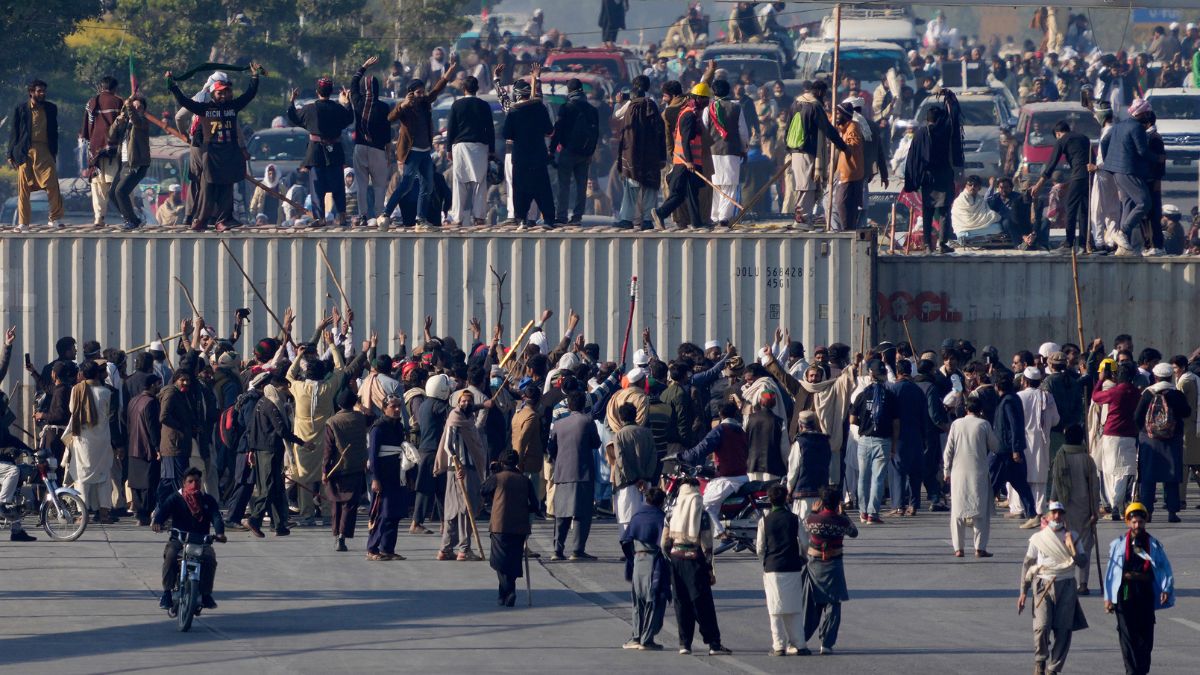)

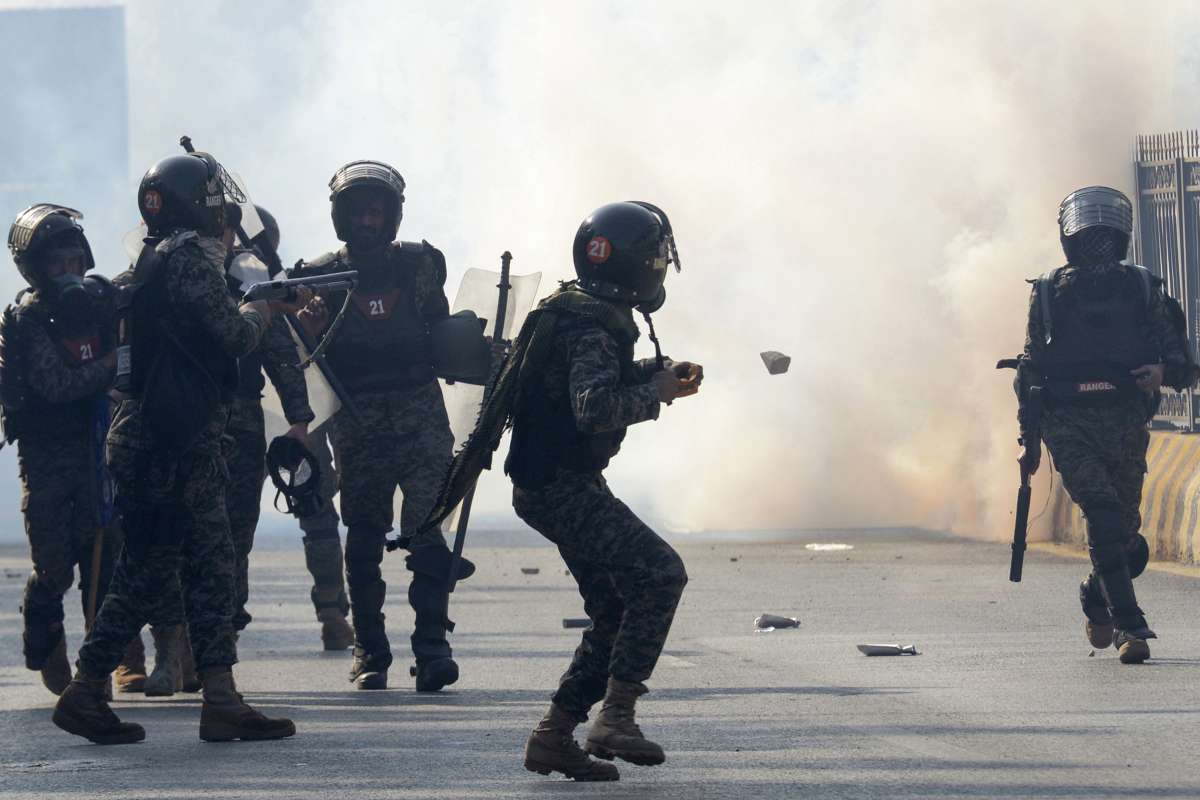
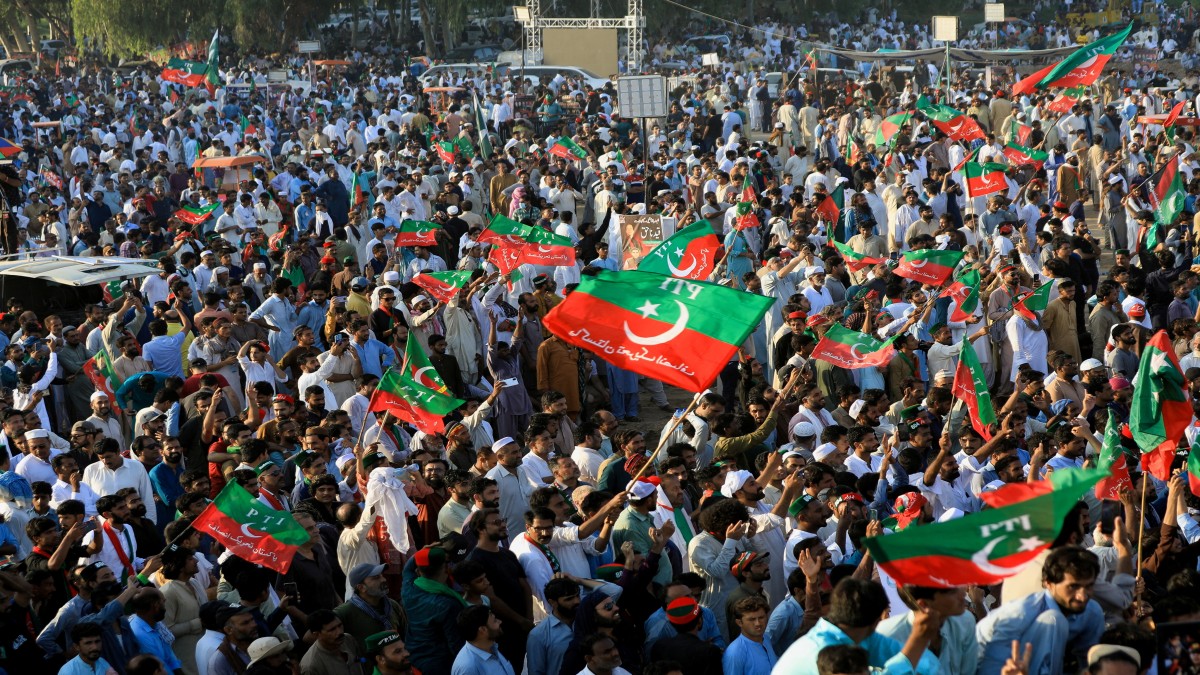)
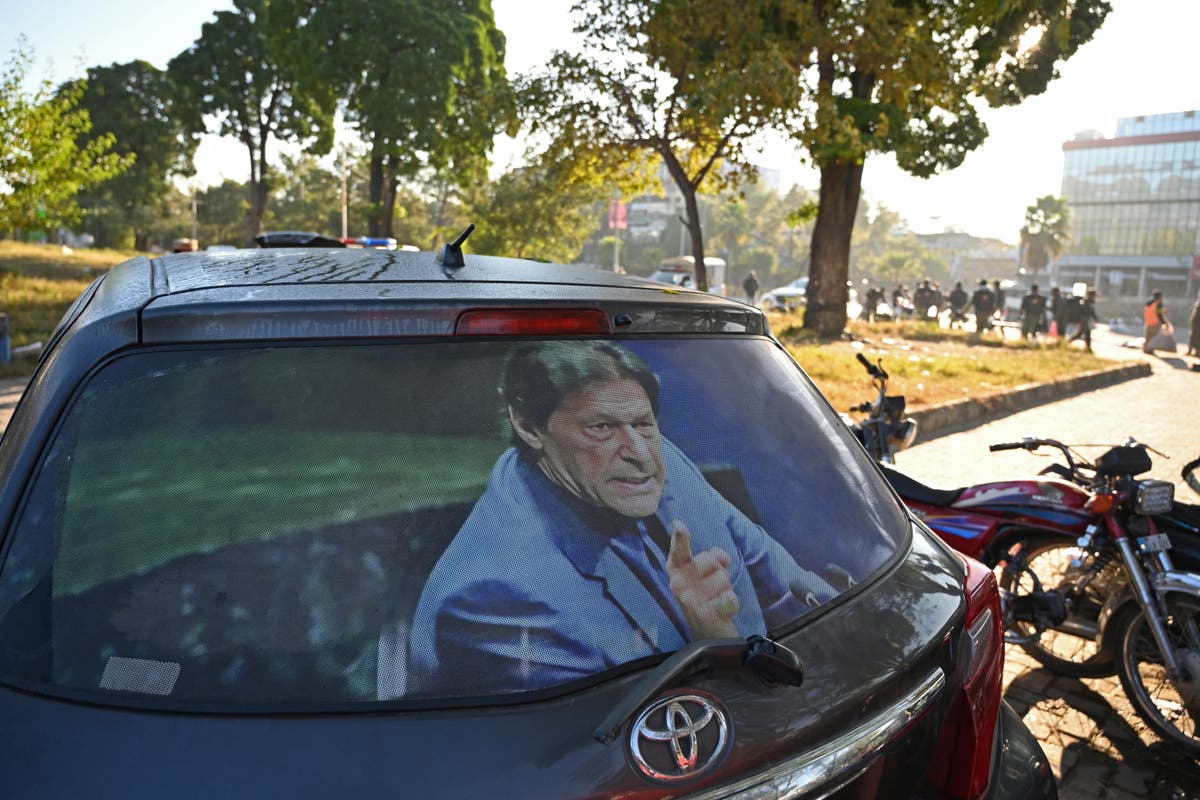




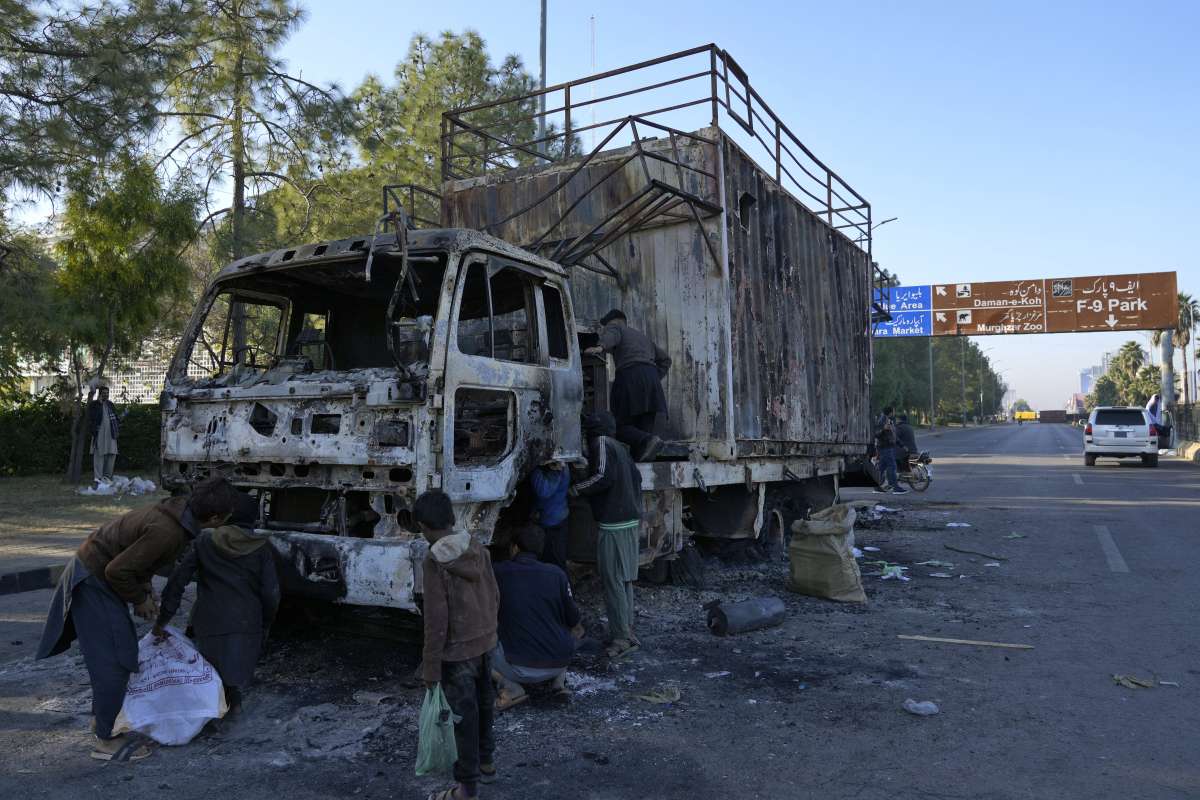

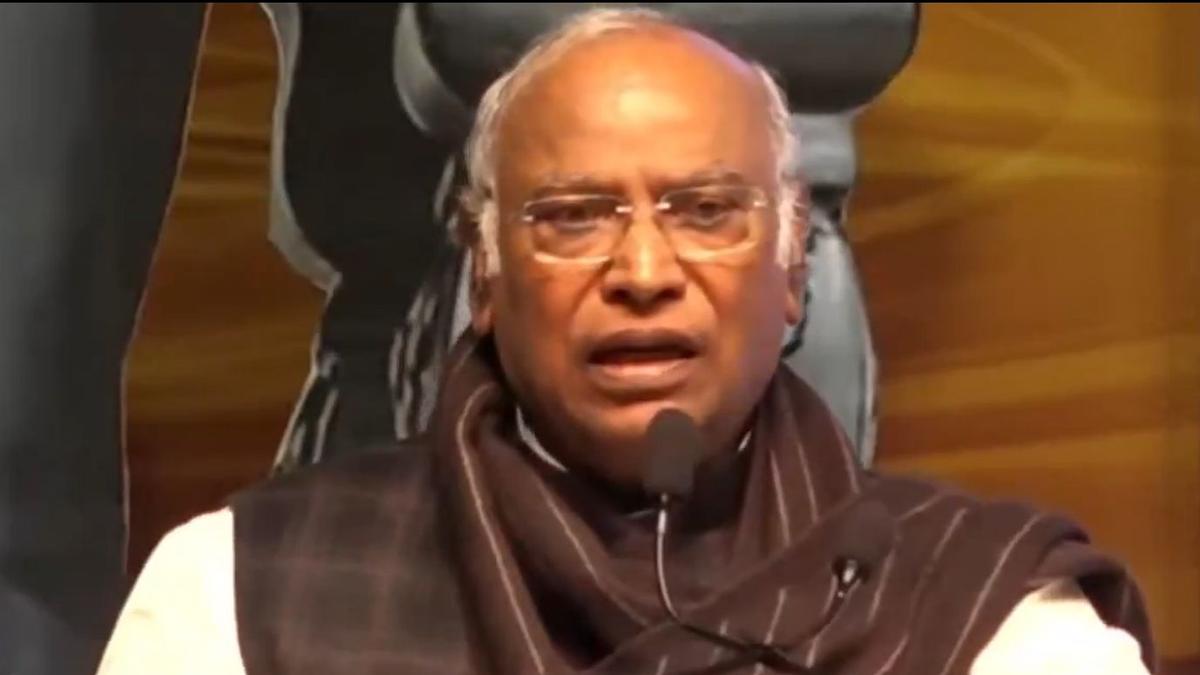
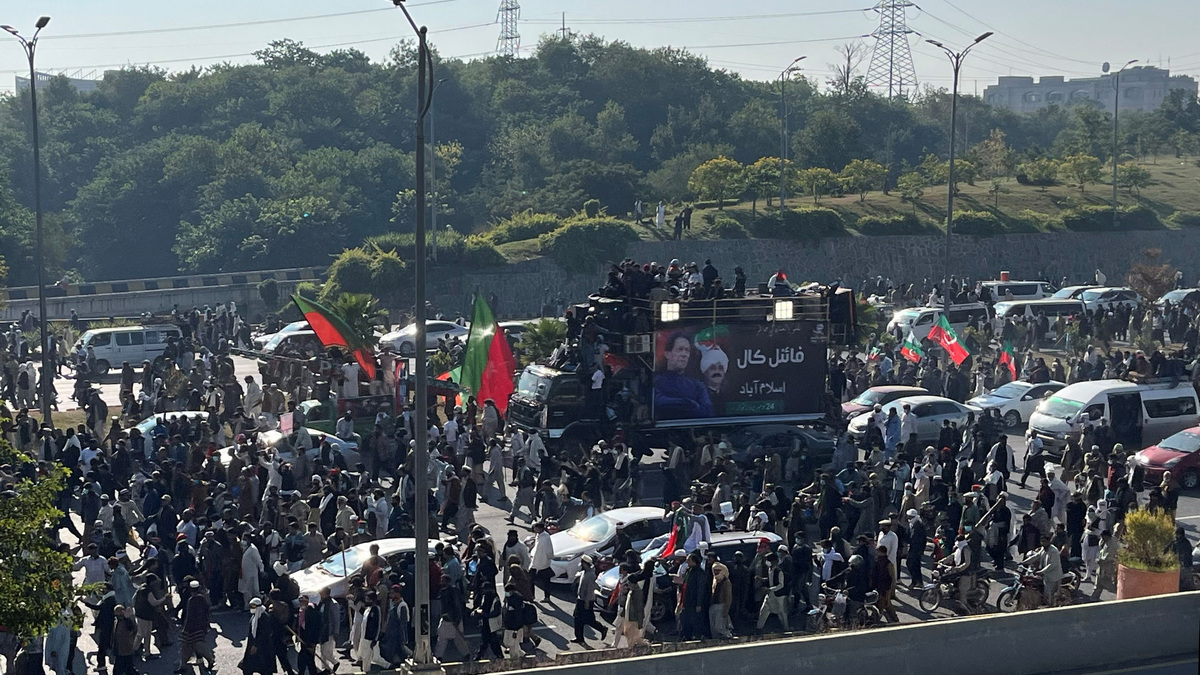)
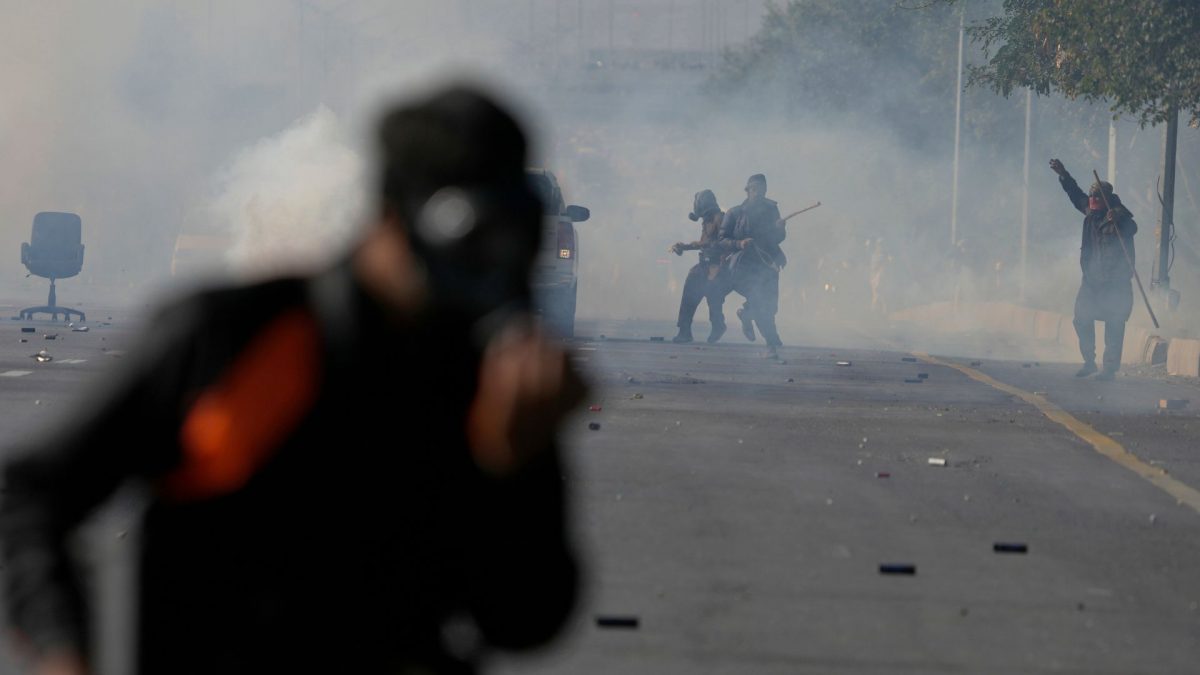)

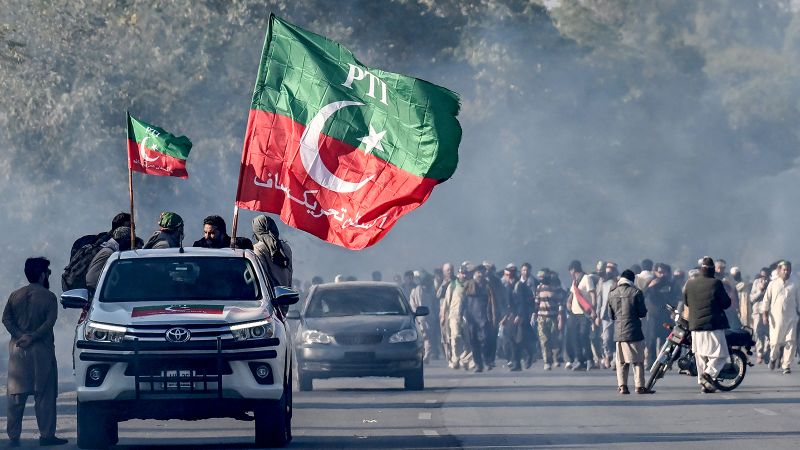

)


